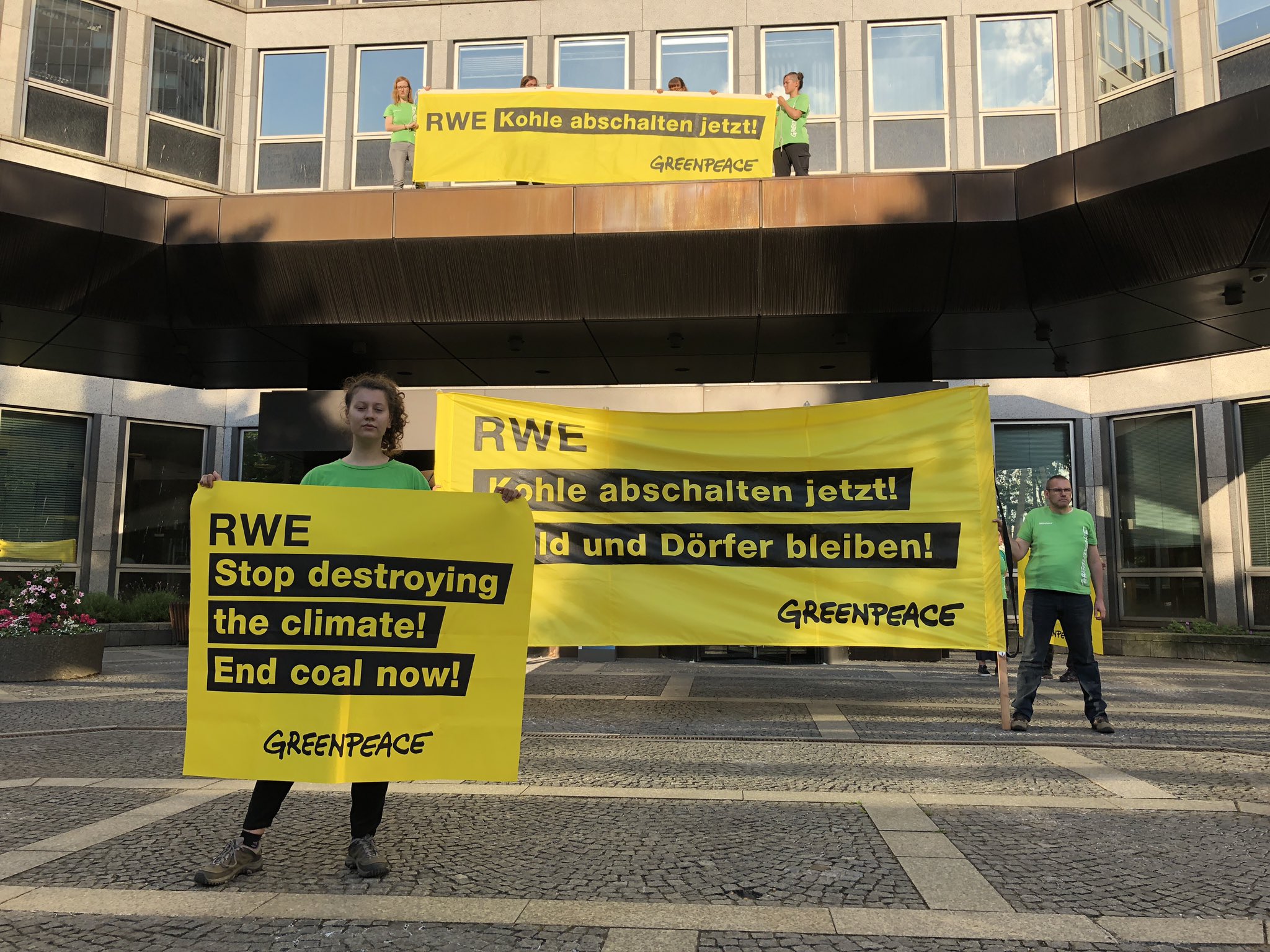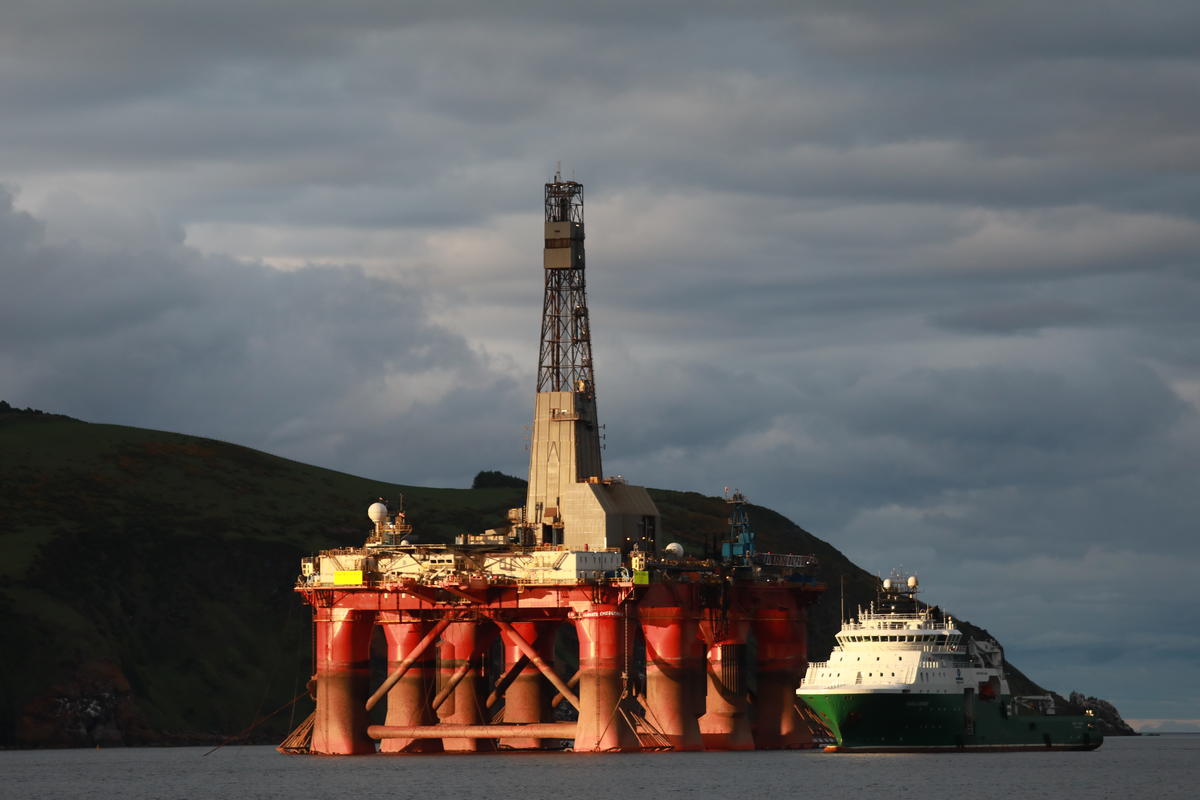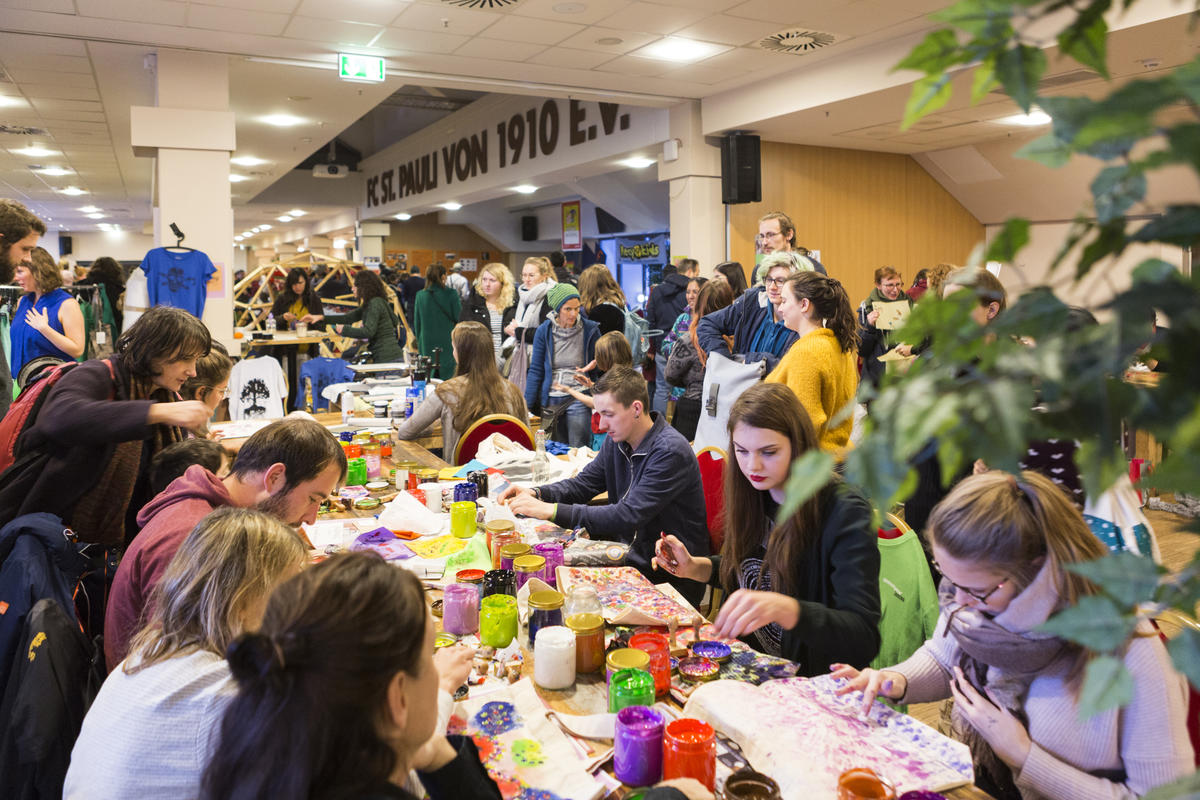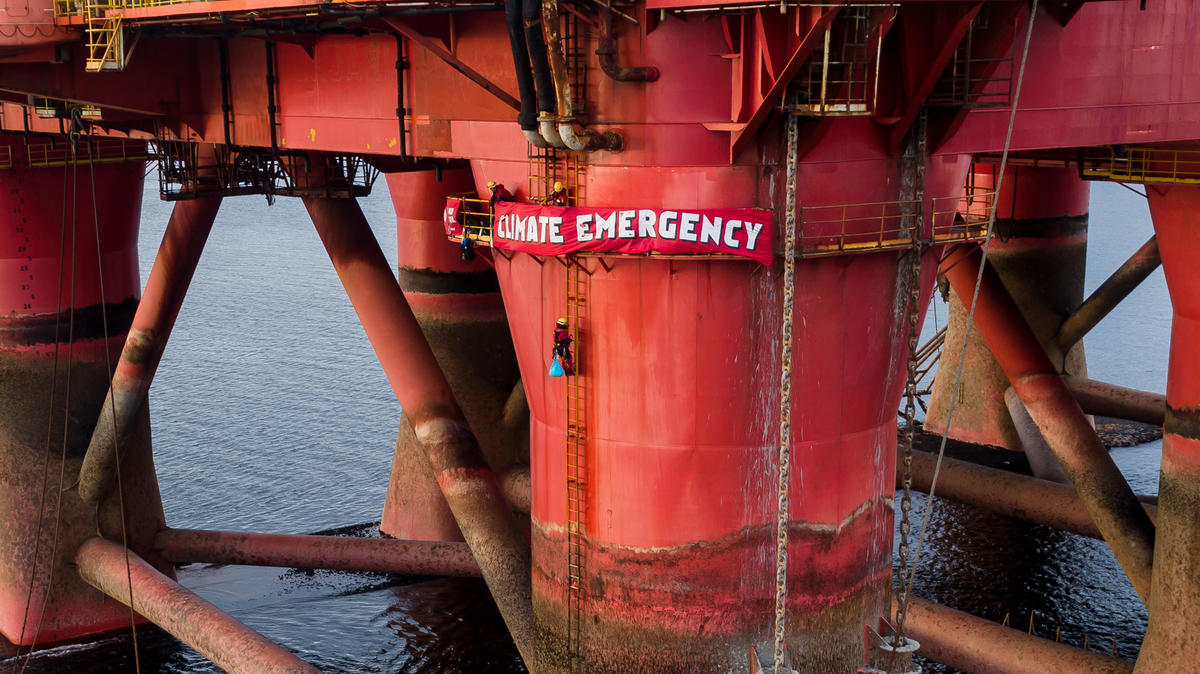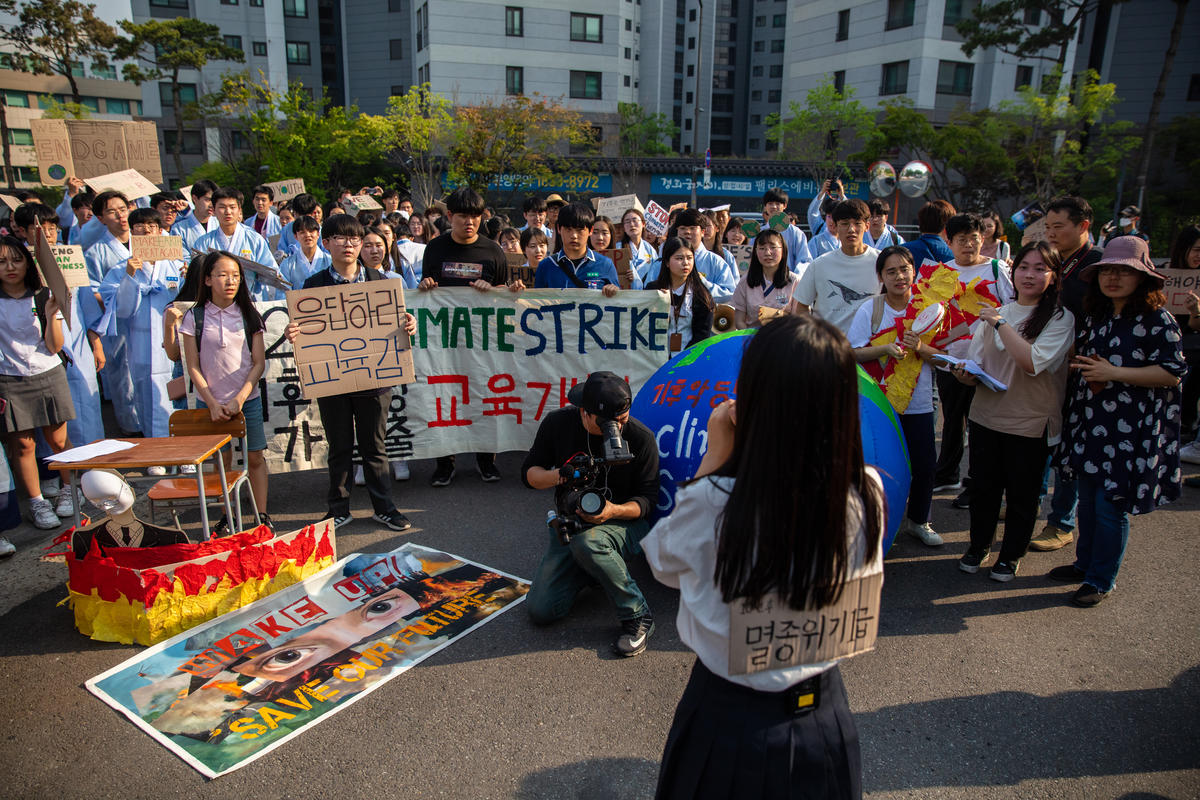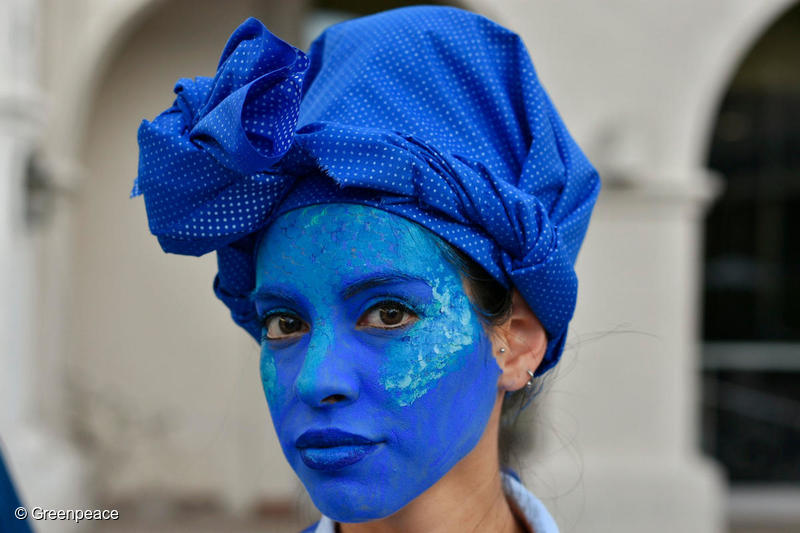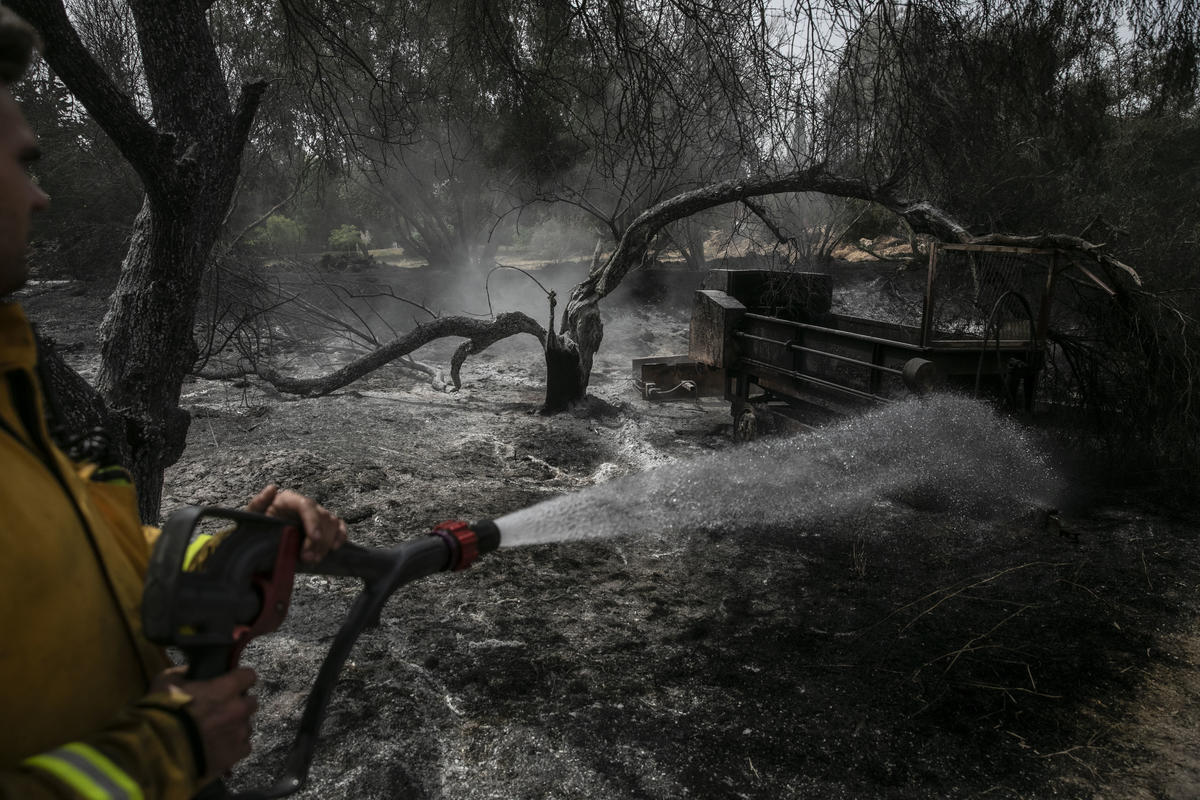News & Stories
Filtered results
-
Greenpeace activists crash energy giant RWE with urgent call to quit coal
With annual emissions of 118 million tonnes of CO2 (2018), RWE is Europe’s worst corporate climate offender.
-
Day 8 #BPShutdown: Greenpeace ship the Arctic Sunrise arrives on the scene
BP currently have a 27,000 tonne oil rig off the coast of Scotland, aiming to drill new wells and 30 million barrels of oil. We cannot allow this to happen.
-
BP oil rig U-turns after failing to shake off Greenpeace ship
In the long run, this is a confrontation BP can’t win. They are in it for their profits, we’re in it for our planet’s future.
-
200 days to end deforestation
Greenpeace Canada activists crashed the Consumer Goods Forum Global Summit to send them a clear message: no more empty promises.
-
Greenpeace climbers block BP oil rig for six consecutive days
"BP are heading out to drill a new well giving them access to 30 million barrels of oil - something we can’t afford in the middle of a climate emergency."
-
World Oceans Day 2019
To celebrate World Oceans Day this year, we asked people across the world to show their support for ocean protection by painting themselves blue and performing human waves!
-
Greenpeace peaceful protest disrupts CEOs linked with destroying millions of forest hectares
“We’re here to send a direct message: you are failing to end deforestation, pushing species to the brink of extinction and feeding the climate crisis."

